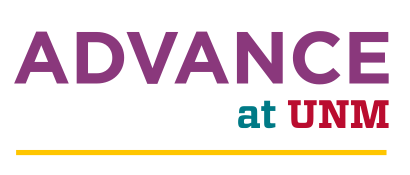UNM education professor examines equitable instruction during COVID
UNM assistant professor of literacy Dr. Mary Frances Rice recently co-authored multiple publications on the rising importance of the work by instructional designers to support impartial education during COVID-19.
The work includes an article in Information and Learning Sciences called Self-regulated learning in online learning environments: strategies for remote learning and two in the Distance Education journal, Instructional designers’ shifting thinking about supporting teaching during and post-COVID-19 and Instructional designers’ roles in emergency remote teaching during COVID-19.

In one of the articles, Rice and her co-authors gathered existing evidence about how to support children and adolescents in self-regulating their learning in online educational settings. Much of this research came from projects that Rice had participated in during her graduate school experiences.
The evidence gathered from previous studies included asking students to consider how they learn online, providing pacing support, monitoring engagement, and supporting families.
The paper has been viewed on the journal website more than 26,000 times and is posted in other locations. The article was also referenced in the policy document from the European Union Publication Office Document “What did we learn from schooling practices during the COVID-19 lockdown?”, which has been used in many countries to develop educational guidance during the present and future pandemics.
“When school buildings closed the young people were at home working on their lessons and people needed quick information about what families needed to be successful engaging in learning outside of a school classroom. That is what this article provided,” Rice said.
The other two co-authored articles focused on instructional designers’ perceptions of their new roles and the possibilities for supporting learning that relied on digital applications and programs to support instruction. In one of the articles, instructional designers highlighted their commitment to accessibility and supporting the university community during this time of shifting instructional modalities. The designers also described their work in providing access to resources, offering professional learning and technology support to a higher degree than prior to the pandemic, and serving as advocates for students and their profession.
“Basically, we saw that instructional designers felt their role in the university was not well-understood and the pandemic gave them an opening to demonstrate the value of their expertise and increase their sense of belonging,” Rice said.
In one of the articles, Rice found that instructional designers worked with researchers to build a model for interaction to support the development of stronger online instruction. This model is called the E-CAMP framework. It is predicated on inquiry-based professional learning that prioritizes emotional presence in building community, prioritizing accessibility, leveraging Multimodal learning experiences, and supporting performance for students and instructors.
“The big takeaway was that instructional designers in the study were highly invested in collaborating with teaching faculty to ensure that online learning is the planned, organized, flexible, accessible experience that research says it can be with appropriate support,” Rice said.
Rice continues to collaborate with UNM colleagues and others outside the university to publish on issues related to supporting learning in both K-12 and higher education during the pandemic. She recently had an editorial in the Journal of Adolescent and Adult Literacy that advocates for better planning and support. Among other things, it pushes for the consideration of digital literacy as part of overall plans for online learning during pandemics and beyond.
“I heard a saying recently, that, rather than ‘return to normal’ we should be aiming to ‘normalize our lives in the pandemic world,’ at least for the next while,” Rice said. “I agree with that. We need to expect disruption to be the norm and we need to work with experts in digital and online technologies to help us build the best learning experiences we can,” she said.
